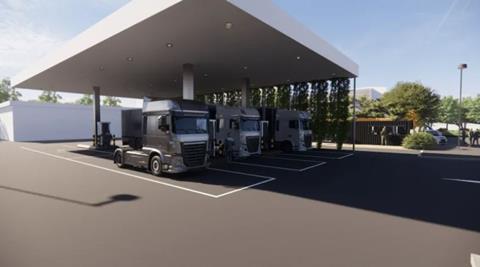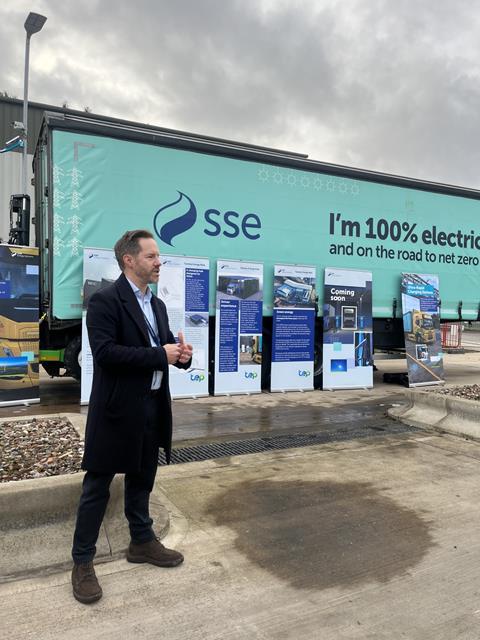SSE Energy Solutions is set to establish its inaugural electric Heavy Goods Vehicle (HGV) charging hub at Tyseley Energy Park in Birmingham, West Midlands.

The hub, strategically located near the A45 in the eastern part of the city, aims to support up to four electric HGVs simultaneously. Equipped with robust 360kW chargers, the facility is designed to provide a charge range of up to 300km within 1-2 hours, contingent on the vehicle and battery specifications.
With only 0.3% of HGVs in the UK currently electric, this initiative represents a significant step for SSE in contributing to the decarbonisation of the road freight sector. Diesel-powered HGVs, constituting 17% of road transport emissions, are a focal point for emissions reduction efforts, given their disproportionate impact.

Tyseley Energy Park, owned by the Webster and Horsfall Group since 2010, already hosts the UK’s largest hydrogen refueling station and a 10MW waste-wood biomass power plant, generating electricity for 17,000 homes. The addition of SSE’s electric truck charging hub aligns with Tyseley Energy Park’s commitment to sustainability and air quality improvement.
SSE Energy Solutions plans to construct 500 ultra-rapid charging hubs for electric cars and commercial fleets across the UK and Ireland by 2030. Several sites are already operational as part of this ambitious project. The Tyseley hub represents SSE’s dedication to accelerating the transition to electric vehicles and fostering the necessary infrastructure.
The charging hub at Tyseley Energy Park will feature a canopy constructed from galvanised steel and sustainable timber, incorporating a rainwater harvesting system for irrigation. This eco-friendly design aims to provide a habitat for insects, bees, birds, and bats.
Ben Brickwood, EV Project Development Manager for HGV at SSE Energy Solutions, emphasises the company’s commitment to reducing transport emissions and contributing to a net-zero future. David Horsfall, Director of Property at Tyseley Energy Park, welcomes SSE’s initiative, highlighting its significance in the region’s efforts to enhance air quality and decarbonisation.













